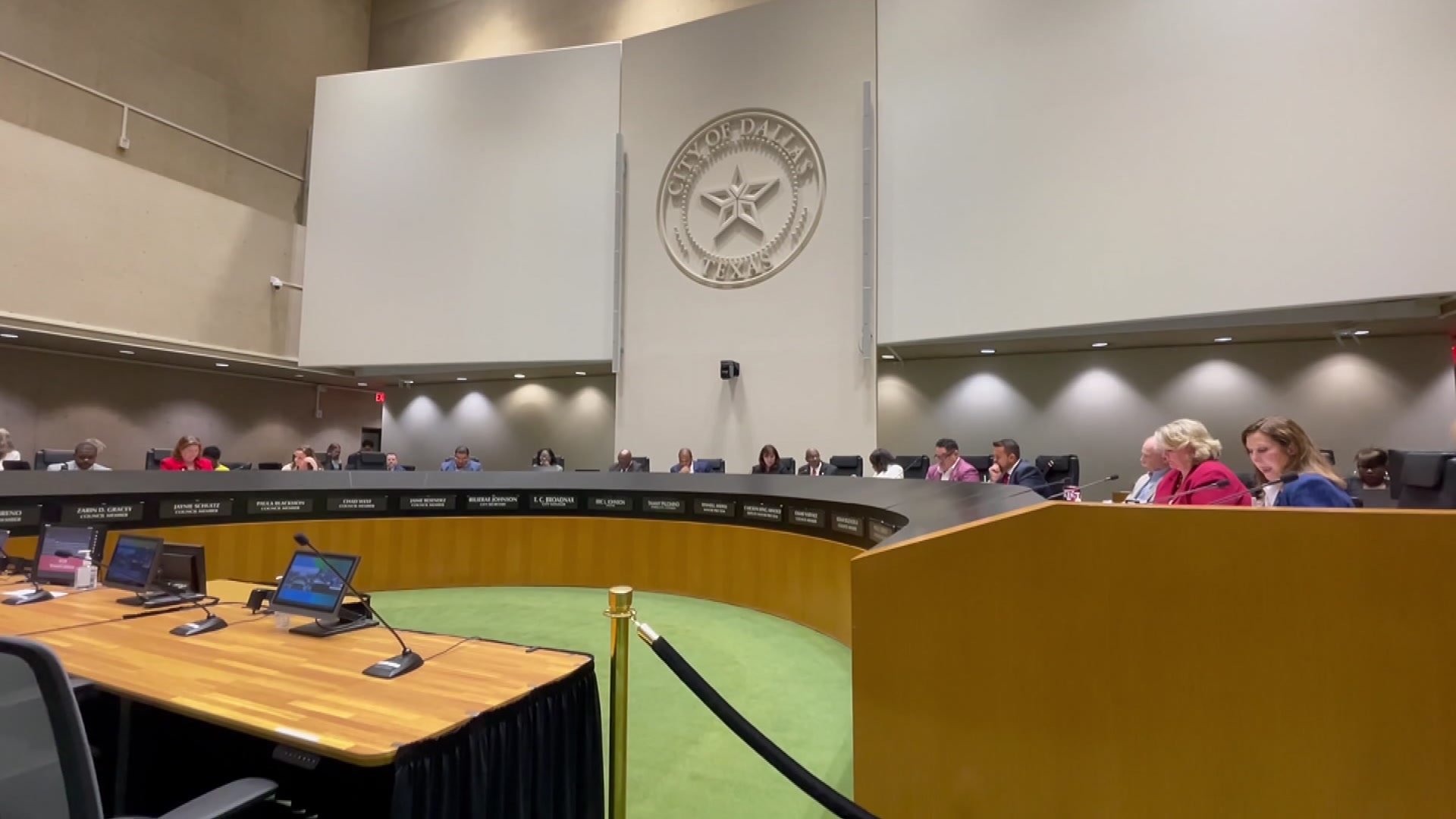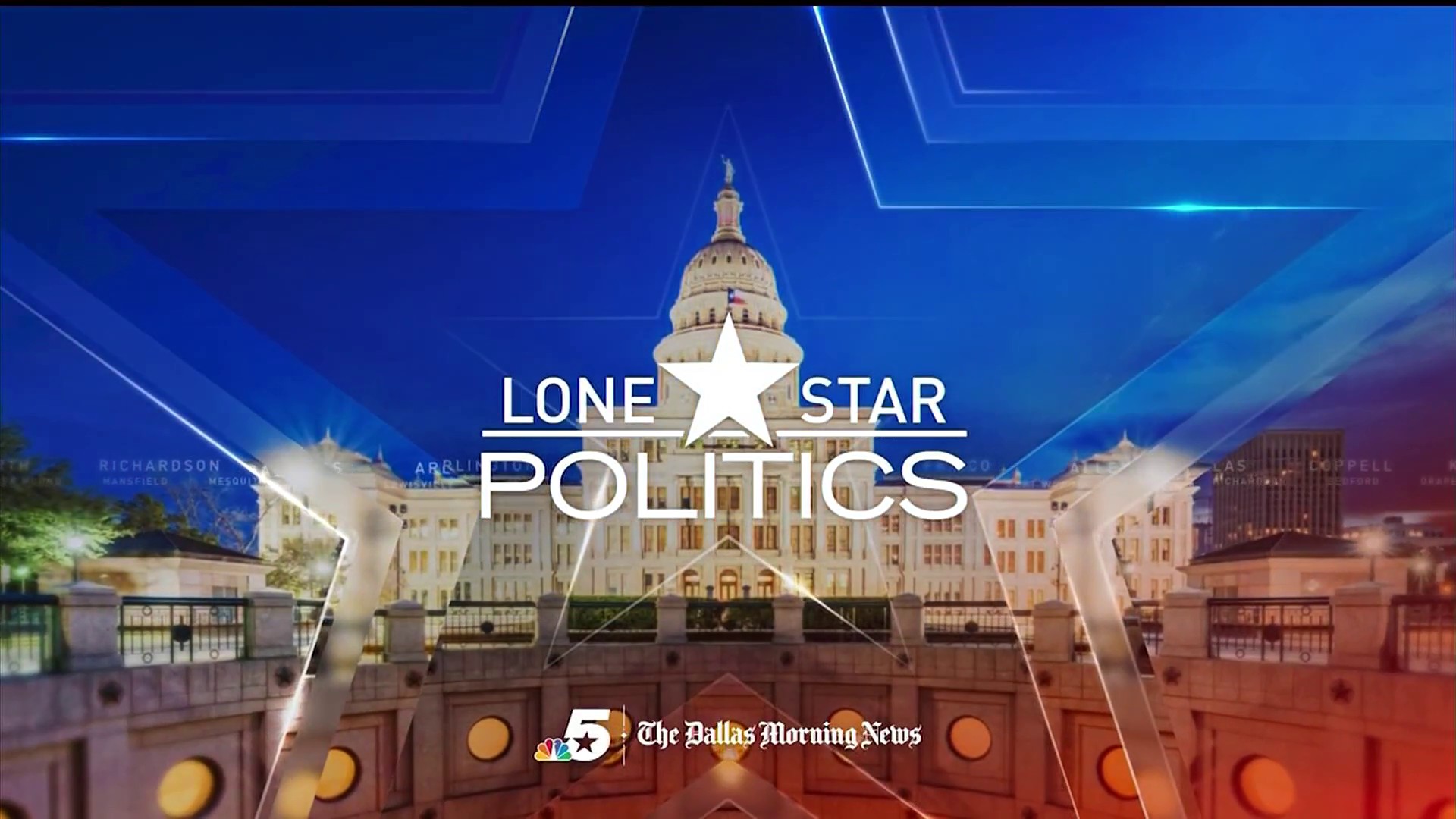Texans will head to the polls next week to vote on eight propositions, two of which seem to stem from the last year.
"Most of them feel like pandemic era propositions, some of them don't. There is always some randomness,” University of Texas government professor Zach Elkins said.
The first proposed amendment that responds to the pandemic is Proposition 6. It concerns nursing homes and skilled living facilities and appears on the ballot as the statement below.
Proposition 6: "The constitutional amendment establishing a right for residents of certain facilities to designate an essential caregiver for in-person visitation."
During the pandemic, some families went months without seeing loved ones.
Get DFW local news, weather forecasts and entertainment stories to your inbox. Sign up for NBC DFW newsletters.
If passed, it would allow each family to designate one caregiver who would be able to be there in person. Kevin Warren, president and CEO of the Texas Health Care Association, said he was hopeful it would pass.
“The biggest issue I think, and the biggest importance of it is, is that it recognizes the importance of in-person visitation, which was significant when you look back on 2020 and the impact that that lack of that connection to families had with the residents,” he said.
The second proposition stemming from COVID-19 is Proposition 3, which impacts religious services and allows them to continue -- even during a pandemic.
Proposition 3: "The constitutional amendment to prohibit this state or a political subdivision of this state from prohibiting or limiting religious services of religious organizations."
Lone Star Politics
Covering politics throughout the state of Texas.
Pat Svacina, the Director of communications for the Fort Worth Diocese said in the a statement, “
The Diocese of Fort Worth under the leadership of Bishop Michael Olson was one of the first Texas Catholic dioceses to urge the state and local governments to recognize the separation of religion and government and to exempt religious organizations from restrictions on gatherings. The Diocese still supports this position.”
Voters will also decide on six other amendments, listed below. Early voting runs through Friday and Election Day is Nov. 2.
Proposition 1: "The constitutional amendment authorizing the professional sports team charitable foundations of organizations sanctioned by the Professional Rodeo Cowboys Association or the Women's Professional Rodeo Association to conduct charitable raffles at rodeo venues."
Proposition 2: "The constitutional amendment authorizing a county to finance the development or redevelopment of transportation or infrastructure in unproductive, underdeveloped, or blighted areas in the county."
Proposition 4: "The constitutional amendment changing the eligibility requirements for a justice of the supreme court, a judge of the court of criminal appeals, a justice of a court of appeals, and a district judge."
The eligibility requirements the amendment would add, among other things, that a person is licensed to practice law in Texas and that they live in Texas at the time of election. The amendment would also change requirements to be eligible to be appointed to a position.
Proposition 5: "The constitutional amendment providing additional powers to the State Commission on Judicial Conduct with respect to candidates for judicial office."
Proposition 7: "The constitutional amendment to allow the surviving spouse of a person who is disabled to receive a limitation on the school district ad valorem taxes on the spouse's residence homestead if the spouse is 55 years of age or older at the time of the person's death."
Proposition 8: "The constitutional amendment authorizing the legislature to provide for an exemption from ad valorem taxation of all or part of the market value of the residence homestead of the surviving spouse of a member of the armed services of the United States who is killed or fatally injured in the line of duty."



